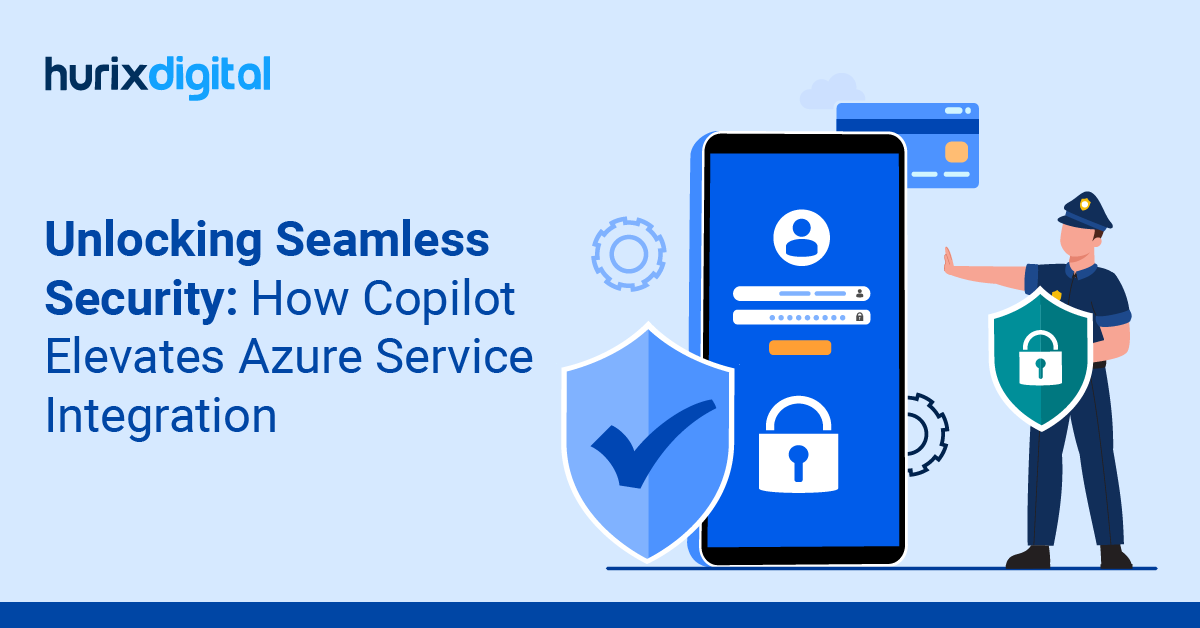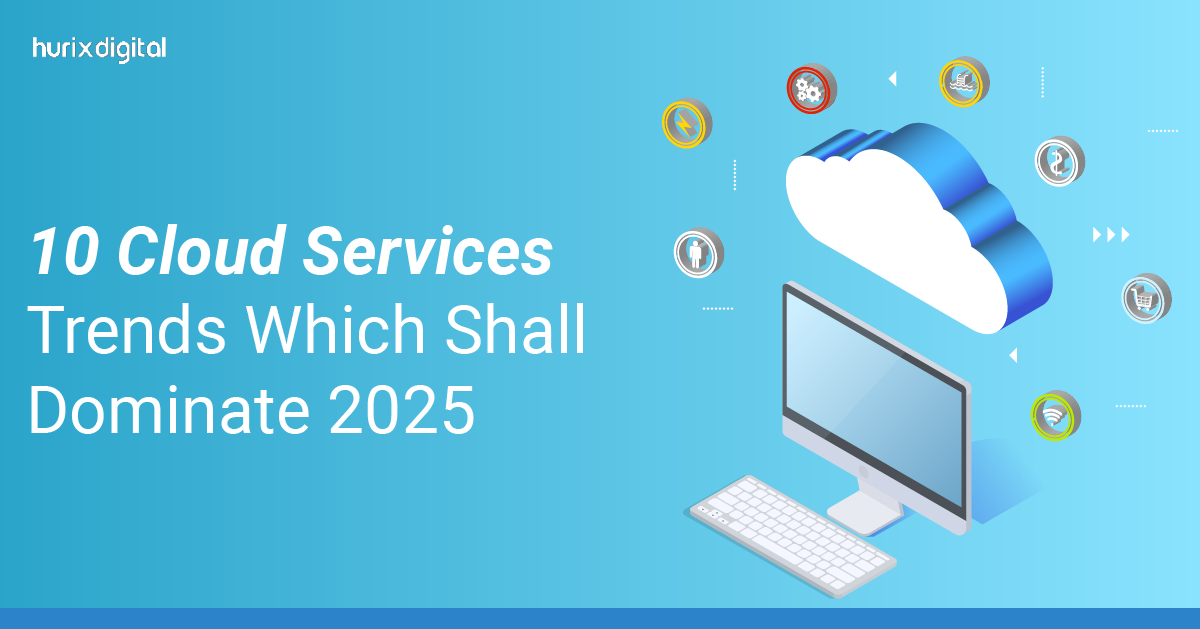
Unlocking Seamless Security: How Copilot Elevates Azure Service Integration
Summary
This blog explores how Copilot Security enhances Azure cloud security using AI-driven threat intelligence, natural language queries, and automation, highlighting integration with Azure services and business benefits like efficiency.
In today’s rapidly evolving digital landscape organizations are increasingly migrating towards cloud to gain flexibility, scalability, and efficiency. However, with this transformation comes the challenge of ensuring robust security across diverse and complex environments. Azure Microsoft’s comprehensive cloud platform offers businesses a set of tools to address these challenges. Adding a game-changer like Microsoft Copilot to this ecosystem amplifies the potential of Azure enabling seamless integration and enhanced cloud security.
The integration of AI technologies like Microsoft Copilot has transformed how businesses handle IT and security-related tasks. Its integration with the Azure Portal provides a comprehensive and user-friendly experience making Azure security more accessible to businesses of all sizes. This blog explores how Copilot for Azure works, its transformative impact on Azure SQL Database service integration, and the immense business benefits it delivers.
Table of Contents:
- How Microsoft Copilot Works?
- Scenarios: Natural Language Queries with Actionable Responses
- How Microsoft Copilot Elevates Azure Service Integration
- Business Benefits of Microsoft Copilot
- Conclusion
How Microsoft Copilot Works?
1. AI-Powered Threat Intelligence
Microsoft Copilot integrates with Microsoft’s threat intelligence database, which is informed by trillions of signals from Azure, Microsoft 365, and third-party services. This enables the tool to provide up-to-date threat analyses and contextual Azure security best practices recommendations enhancing copilot security.
2. Natural Language Query Support
Users can ask questions or issue commands in plain language. For example, queries like “What are the recent vulnerabilities in my network?” or “How can I secure my virtual machines?” are met with actionable responses.
3. Automation and Simplification
Microsoft Copilot automates repetitive tasks, such as generating incident reports, configuring policies, and responding to alerts. It reduces the cognitive load on security teams, allowing them to focus on strategic objectives while improving copilot security.
4. Integration with Security Tools
Seamlessly connecting with Azure Portal, Azure Security Center, Azure SQL Database, and other Microsoft tools, Microsoft Copilot consolidates insights from various sources, offering a unified view of the security landscape. This makes Copilot Security intuitive and comprehensive.
5. Actionable Insights for Copilot Security in Cloud
One of the noteworthy features of Microsoft Copilot is its ability to translate complex security configurations into clear and actionable insights. It identifies the potential vulnerabilities, optimizes resource configurations, and ensures compliance with Azure security best practices.
Scenarios: Natural Language Queries with Actionable Responses
Let’s explore real-world scenarios where Copilot for Azure’s natural language processing delivers immediate value:
1. Incident Response
Query: “What’s the status of the phishing attack detected yesterday?”
Response: Microsoft Copilot provides a summary of the incident, affected systems, and remediation steps taken. It may also recommend follow-up actions like monitoring specific endpoints or user accounts.
2. Policy Configuration
Query: “Set up a policy to restrict access to sensitive data for external users.”
Response: The tool generates an Azure Entra ID Conditional Access policy and walks the user through its implementation.
3. Threat Analysis
Query: “Are there any unpatched vulnerabilities in my environment?”
Response: Microsoft Copilot scans Azure Security Center logs and presents a list of vulnerabilities, prioritized by severity along with recommended patches or mitigations.
4. Real-Time Monitoring
Query: “Show me all high-priority security alerts in the last 24 hours.”
Response: It retrieves a list of alerts from Azure Security Center, categorizes them by impact, and suggests the next steps for resolution.
5. Compliance Management
Query: “Am I compliant with GDPR?”
Response: Microsoft Copilot evaluates the current configuration, highlights non-compliant areas, and provides a roadmap to achieve compliance.
How Microsoft Copilot Elevates Azure Service Integration
1. Unified Security Management
Microsoft Copilot integrates seamlessly with Azure’s ecosystem, consolidating data from services such as Azure Defender, Azure Monitor, and Azure Policy. This unification provides a centralized dashboard for monitoring and managing cloud security across the environment.
2. Enhanced Identity and Access Management
Through integration with Azure Entra ID, Microsoft Copilot simplifies identity governance. It assists in:
- Creating and enforcing the Role-Based Access Control policies.
- Detecting unusual sign-in behaviors.
- Recommending MFA (Multi-Factor Authentication) setups to enhance user authentication security.
3. Streamlined Configuration and Automation
Tasks like setting up virtual network firewalls, encrypting storage accounts, or configuring security baselines can be achieved through simple natural language commands. This will get rid of doing deep technical expertise while ensuring adherence to Azure security best practices.
4. Real-Time Threat Detection with Copilot Security
By leveraging data from Microsoft Sentinel and other Microsoft Security Information and Event Management (SIEM) tools, Microsoft Copilot offers real-time alerts and automated response actions ensuring swift containment of threats.
5. Azure SQL Database Integration
For database administrators, Microsoft Copilot integrates with Azure SQL Database to:
- Identify and resolve the performance blockages.
- Recommend optimal configurations for data security.
- Automate database backups and recovery tasks to ensure minimal downtime.
6. DevOps Integration
For DevOps teams, Microsoft Copilot integrates with Azure DevOps to secure CI/CD pipelines. It can:
- Scan code repositories for vulnerabilities.
- Recommend secure configurations for infrastructure as code.
- Automating security testing as part of the deployment process ensures Copilot Security in development workflows.
Business Benefits of Microsoft Copilot
1. Improvement in Operational Efficiency
By automating routine tasks Microsoft copilot reduces the workload on IT and security teams. This allows them to focus on strategic initiatives rather than getting stuck by repetitive tasks.
2. Faster Decision-Making
The ability to query in natural language and receive actionable insights accelerates decision-making. Teams can quickly address vulnerabilities, respond to incidents, and implement security measures leveraging Copilot Security tools effectively.
3. Cost Savings
The automation process requires limited manual handling and leads organizations to save on operational expenses. Copilot Security helps organizations reduce potential breach expenses by conducting proactive detection of threats and defending against threats systematically.
4. Enhanced Security Posture
With real-time monitoring, compliance checks, and tailored recommendations, organizations can maintain a robust Azure security posture and adapt to emerging threats effectively.
5. Accessibility for Non-Experts
Microsoft Copilot functions as an interface to empower both computer experts and non-technical personnel. The platform features an automatic interface that enables every stakeholder from different organizational levels to join digital asset protection efforts for their organization.
6. Scalability and Flexibility
Microsoft Copilot allows enterprises to ramp up their operations while adjusting their security measures through the consistent evolution of Azure Portal services users and workloads.
7. Driving Digital Transformation
By enabling secure and efficient operations across Azure services, Microsoft Copilot accelerates digital transformation initiatives, positioning organizations to leverage innovative solutions confidently.
Conclusion
Microsoft Copilot harbors fundamental changes concerning cloud security together with operational efficiency. AI and natural language processing technologies enable organizations to leverage the Azure services platform including Azure SQL Database and Azure Security Center to reach maximum security and productivity across any business environment. Modern enterprises that operate in complex cloud environments should adopt Copilot for Azure because this tool provides the best solution for configuration simplification and automation of incident responses as well as compliance enhancement.
Businesses that implement Microsoft Copilot tools achieve security together with agility and business competitiveness within their continuously evolving threat environment.
Contact Hurix Digital Cloud Service experts to explore Microsoft Copilot possibilities in your ecosystem while experiencing future integrated cloud security defense through a tailored discussion of your particular cloud security requirements. Our team offers comprehensive guidance through initial meetings up until ongoing cloud optimization services that help organizations improve their cloud security while resisting cyberattacks effectively.
Start your process to boost your Azure Cloud Service operation today!

Network Consultant- Cloud Services
Akshay is an experienced Network & Security Consultant with strong knowledge of cloud networking and on-premise networks. He is a Certified Microsoft professional to set up customers’ expected Infrastructure on the Cloud meeting compliance standards. He has good hands-on on cloud product versions of Palo Alto, CheckPoint, Fortigate etc.







